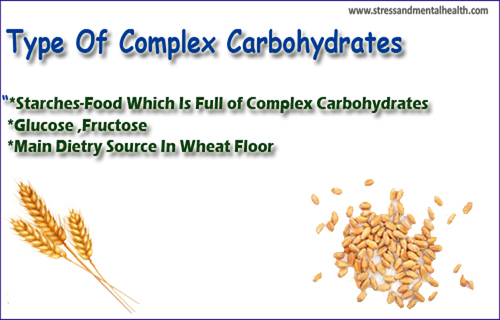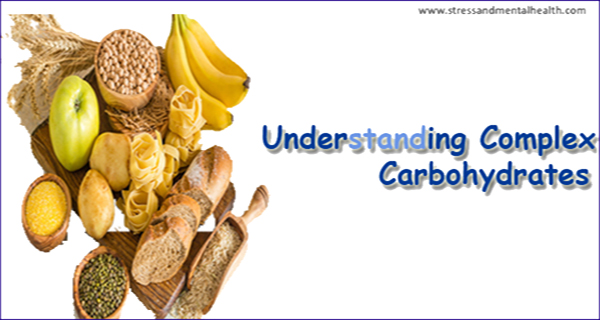“Understanding Complex carbohydrates are made up of sugar molecules which are closely or tightly together in long, complex chains. It is found in foods such as beans, peas, whole grains, and vegetables. Complex carbohydrates are turned into glucose in the human body and are used as energy.”
Understanding Complex Carbohydrates
Complex Carbohydrates are a vital source of energy for the human body. They provide energy to the human body, which is needed for the performance of day-to-day activities, exercise, and rest. These carbohydrates are available in grains, vegetables, nuts, seeds, and complex carbohydrates further provide vitamins and minerals.
These are of two types, Simple carbohydrates, and Complex carbohydrates. Simply the size of the number of molecules differentiates both.
- Simple carbohydrates: Simple Carbohydrates are made up of only one or two sugar units. It includes sucrose, glucose, sugar, fructose, maltose, honey, and syrups. Simple carbohydrates provide us instant energy.
- Complex carbohydrates: Complex carbohydrates are many single units and are linked jointly. Polysaccharides contain thousands of linked monosaccharides. Oligosaccharides contain approximately up to 10 sugar units. Complex carbohydrates provide regular energy. Starch is the important food source of this type of carbohydrate, which need to be broken down into monosaccharides for absorption.
Complex carbohydrates are available in
- Peas, beans, and other legumes.
- Bread,
- Whole grains
- Starchy vegetables
- Cereals
Simple carbohydrates are available in
- Sugar
- Honey
- Maple syrup
- Candy
- Soft drink
- Fruits.
- Milk products.
Types of complex carbohydrates

Fiber
Understanding Complex Carbohydrates is naturally found in plant cells. The plant cell wall contains 95 % of dietary fiber components, cellulose, hemicelluloses, lignin, pectin, and some non-starchy items. Cellulose shapes the structures which give shape to plants. Vegetable such as green beans, broccoli, spinach contains starch but they contain fiber or cellulose in good quantity.
The human digestive system can not break cellulose separately. Thus the non-digestible fiber slows down the speed of the digestive system and helps the absorption of sugar into the bloodstream.
Fiber is of two types, soluble ( dissolve in water) or insoluble. Soluble fiber helps slow digestion, soften stools, lower cholesterol levels.
Insoluble fiber helps bulk up the stool and move through the colon, helping to prevent constipation. shows if we intake a high or excess amount of insoluble fiber the risk of diabetes develops. So we may take fiber in the appropriate quantity.
Starch
Understanding Complex Carbohydrates is used by plants to store energy. Starches are found in beans, lentils, barley, corn, wheat, etc. Starch is also available in vegetables such as potatoes, carrots. Further, we can also add starch to food during processing.
Starches are digested and absorbed by the human body quickly but take more time than sugar.
Some starches are digested quickly and cause a more rapid rise in blood sugar. While some others are digested slowly, resulting in less rise in blood glucose levels in the human body. So we may consume an appropriate quantity of carbohydrates in our food.
Some starch is called resistant starch, which is not digested in the small intestine and causes no blood sugar rise.
Amylose is broken down slowly. Thus it is digested more slowly.
The quantity of amylose is different in different types of rice. Long grain rice contains higher amylose and shorter grain rice contains low amylose which means it will be digested more quickly. Beans contain cellulose, so beans are digested slowly.
Refined starch is digested most rapidly. If grains or legumes, such as beans, brown rice, remain whole, the starch will break down into sugar slowly. But some resistant starch is not turned into sugar and reached to large intestine unbroken.
Some cooked starches, such as certain types of potatoes and rice, are cooked and cooled, out of which some starch takes a longer time to digest.
The digestive system of each and every person is different. It depends on how the food has been chewed, amount of food intake, time of consuming food, type of food intake.
Frequently Asked Question About Understanding Complex Carbohydrates?
Q. What is the difference between complex carbs and simple carbs?
Ans. Table sugar and syrups are simple carbohydrates foods. complex carbohydrates bear longer changes of sugar molecules than simple carbohydrates. The human body converts these sugar molecules into glucose, which use for energy.
Q. What are the 4 types of complex carbohydrates?
Ans. Whole grains such as brown rice oats meal, barley, faro are complex carbohydrates foods.
Q. is starch a complex carbohydrate?
Ans. Starchy vegetables such as potatoes, sweet potatoes, and corn are complex carbohydrates.
Q. What are the healthiest complex carbohydrates?
Ans. The healthiest complex carbohydrates are found in whole plants foods, maintain their natural fiber, and fuel energy in the human body. It includes beans, oats meal 100% whole wheat bread, potato, barley, etc.
